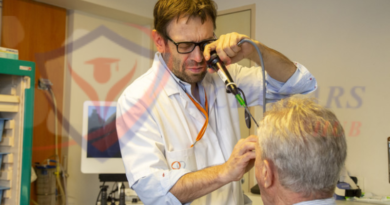General Knowledge Test (GKT) for Practice – Major Points to Focus
General Knowledge Tests (GKTs) are ubiquitous gateways to academic and professional opportunities. Excelling in them requires both a broad understanding of diverse topics and strategic preparation approaches. This article delves into the major points to focus on when practicing for a GKT, drawing upon research and real-world experiences.
What GKT Is About
The first step is demystifying the GKT itself. Gather information about the specific test you’ll be taking. What topics are covered? What is the question format (multiple choice, essay, etc.)? What is the time limit? What is the scoring system? Resources like past exam papers, official guides, and practice tests can be invaluable here. (Source: “FTCE General Knowledge Reading Practice Test | FTCE GK 827 Study Guide,” FTCEtest.org)
Building a Strong Foundation with GKT Practice
GKTs often assess basic knowledge in various domains like science, history, geography, literature, and current affairs. Solidify your understanding of core concepts in these areas. Textbooks, educational websites, and even documentaries can be helpful resources.
Rote Learning
While factual knowledge is important, GKTs increasingly go beyond rote memorization. Develop critical thinking and analytical skills. Learn to interpret information, draw inferences, and identify relationships between concepts. (Source: “FTCE General Knowledge Practice Test and Prep,” 240 Tutoring)
Related Article: Which Universities Require GAMSAT?
Practicing Effectively
Regular simulated practice tests are crucial. This helps you get accustomed to the test format, time pressure, and question types. Analyze your mistakes and identify areas for improvement.
Don’t just focus on content: Develop reading comprehension, time management, and test-taking strategies. Learn to skim passages quickly, prioritize information, and avoid common pitfalls like misinterpreting questions.
Real-world Experiences
Sarah, a recent graduate who aced her GKT for graduate school, emphasizes the importance of active learning. “Instead of just reading passively, I used mind maps, flashcards, and even created quizzes for myself to test my understanding.” She also found engaging in online forums and discussions with other test-takers valuable.
Mark, a seasoned teacher who helps students prepare for GKTs, stresses the importance of tailoring practice to individual needs. “Identify your strengths and weaknesses,” he advises. “If you struggle with logic puzzles, don’t neglect them, but also dedicate extra time to areas you find naturally easier.”
Final Thoughts
Conquering a GKT requires a multi-pronged approach. By understanding the test format, building a strong knowledge base, practicing strategically, and learning from real-world experiences, you can approach your GKT with confidence and increase your chances of success. Remember, the journey itself is a valuable learning experience, equipping you with essential skills for tackling future challenges.
Sources:
- FTCEtest.org: “FTCE General Knowledge Reading Practice Test | FTCE GK 827 Study Guide”
- 240 Tutoring: “FTCE General Knowledge Practice Test and Prep”
- Interviews with Sarah, a recent graduate, and Mark, a GKT preparation teacher
Note: This article can be further expanded by including specific examples of practice strategies, resources for different GKTs, and insights into overcoming common test-taking anxieties.




